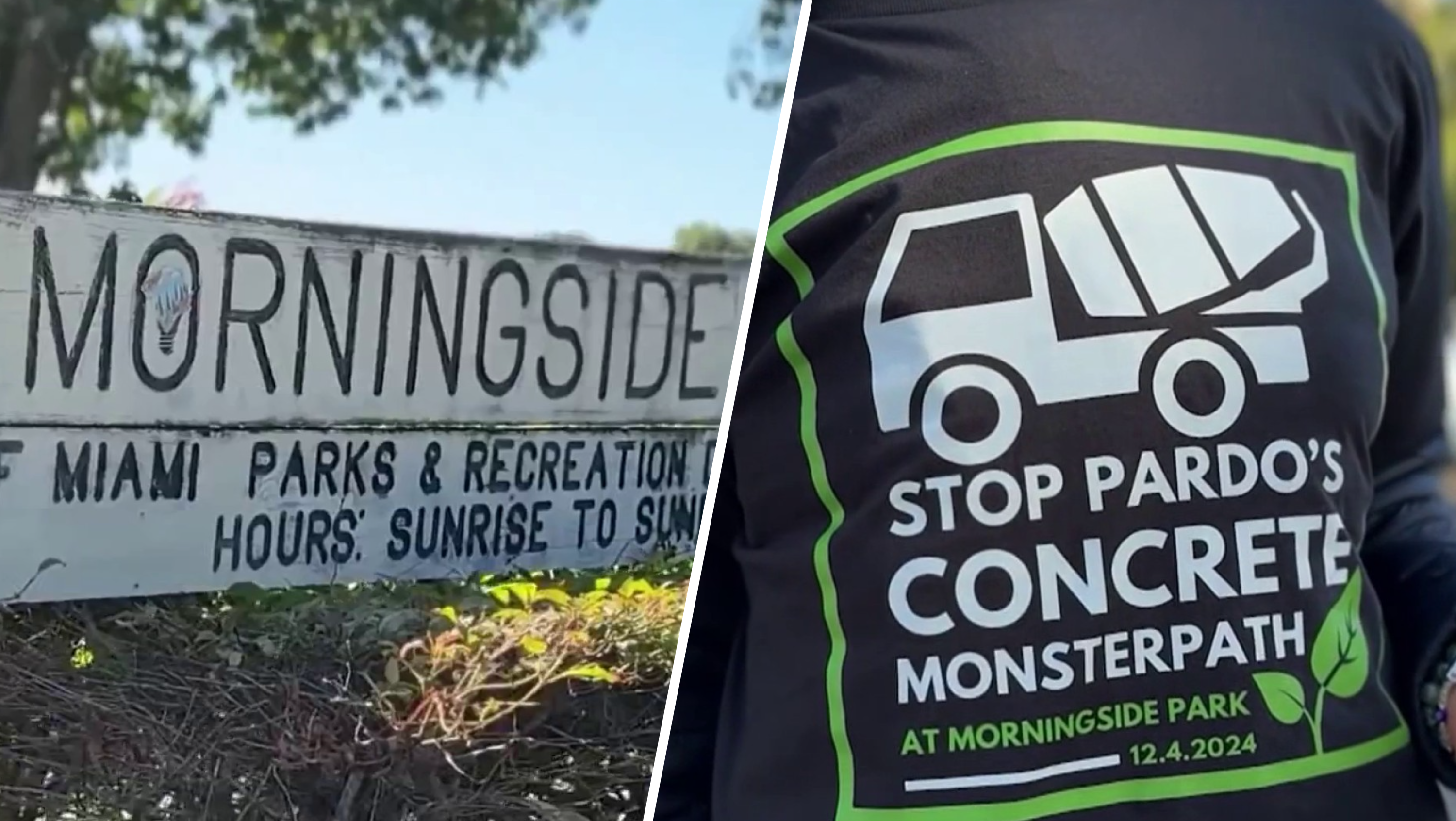Fort Lauderdale Police officers cannot be held liable after a woman was shot in the face by a rubber bullet during 2020 protests over George Floyd's murder, a judge ruled Wednesday.
Still, attorneys for LaToya Ratlieff are celebrating a victory after U.S. District Judge Rodolfo Ruiz ruled the city can still be held liable.
Watch NBC6 free wherever you are
It's been four years since Ratlieff filed a federal class-action lawsuit against the City of Fort Lauderdale and Fort Lauderdale Police Department.
The lawsuit alleges her civil rights and the rights of other protesters were violated when police, without warning, dispersed tear gas into the crowd and deployed rubber bullets during the Black Lives Matter protest on May 31, 2020.
Get local news you need to know to start your day with NBC 6's News Headlines newsletter.
Ratlieff suffered a broken right eye socket, nerve damage to that eye and a 20-stitch gash to her forehead that left a scar. Her attorneys said she also suffers migraines and mental trauma.
Though they won’t be able to go after the individual officers, attorneys for Ratlieff said the judge's decision does allow them to take the city to court.
"There is no question that on May 31, 2020, the clash between police and protestors implicated Latoya Ratlieff’s First Amendment rights. But as explained herein, qualified and statutory immunity extinguish liability as to all officers. However, a jury will determine whether the City of Fort Lauderdale is liable for Ratlieff’s injuries through its policies, procedures, and officers’ conduct," Ruiz's decision read.
Local
Though not totally satisfied, Ratlieff's legal team still sees the decision as a “significant victory."
"Qualified immunity continues to be a vexing and unjust barrier for citizens harmed by police misconduct. Today’s ruling confirms that despite these challenges, justice will prevail for LaToya Ratlieff. The court’s decision reaffirms her commitment to seeking redress and ensuring that those responsible for are brought to justice," her attorneys said in a statement.
The lawsuit, which Ratlieff filed in 2022, alleges that Fort Lauderdale police did not train its officers on how to use the weapons in crowd-control situations and that state law bans the firing of tear gas or rubber bullets into a crowd without first giving a warning to disperse and then ample time to leave.
"The Fort Lauderdale Police Department must be held accountable for their unlawful and reprehensible actions. This ruling is a clear signal that their behavior will not go unchecked, and that accountability is not just a possibility but an impending reality," Ratlieff said in a statement. "I stand resolute in my fight against police brutality and in my advocacy for the rights of all to be free from police brutality. This is not just a victory for me, but a step forward in the broader struggle for accountability and justice in our community."
The round that struck Ratlieff was made of collapsible, hollow foam that is typically filled with a chemical irritant. According to its manufacturer, it is about the size of a golf ball, weighs slightly less and has an initial velocity of 200 mph. The rounds are supposed to be aimed at the legs and buttocks as they can be lethal if they hit the head or chest.
In 2021, the detective who fired the rubber bullet that hit Ratlieff was cleared of all wrongdoing. The investigation concluded he was aiming at a man who had thrown a tear gas canister back at officers when Ratlieff walked into his line of fire. The department's then-interim chief also issued an apology to Ratlieff.
The police investigation put the blame for the violence on some of the protesters, saying they had come to the city looking to start a confrontation with officers. Some bottles and rocks were thrown at officers during the melee.



